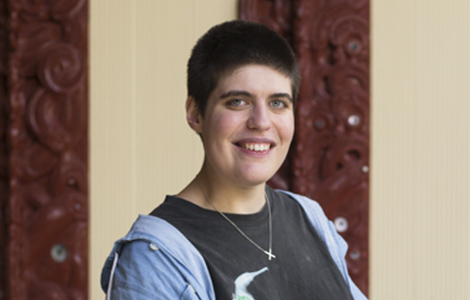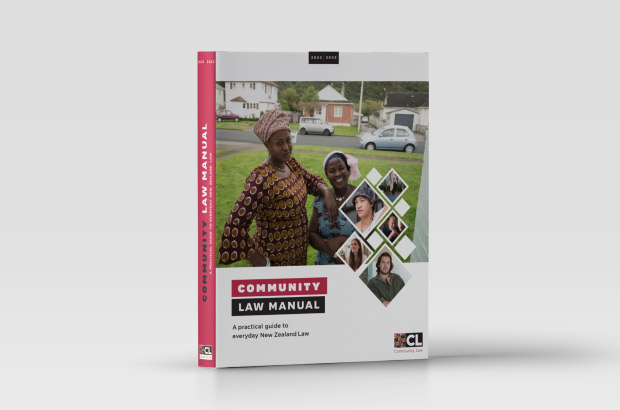Compulsory Treatment Orders
The process for making a compulsory treatment order
Step 1: Applying for a compulsory treatment order
When can a compulsory treatment order be applied for?
Mental Health (Compulsory Assessment and Treatment) Act 1992, s 14
If, during your second period of assessment (see: “Step 7: The certificate of final assessment”), your responsible clinician decides that you are not fit to be released, the responsible clinician must apply for a compulsory treatment order. This is the only way a patient at this stage can be made to continue to receive treatment.
Note: If your responsible clinician doesn’t apply for a compulsory treatment order before the end of the 14-day second period of assessment and treatment, you will not have to receive any further treatment.
What information do I have to be given about the application?
Mental Health (Compulsory Assessment and Treatment) Act 1992, s 14A
After the responsible clinician applies for a compulsory treatment order, you must be sent the following information:
- a copy of the certificate of final assessment
- a statement of the legal consequences of the finding set out in the certificate of final assessment
- a statement informing you of your right to appear before the court and your right to be heard.
A copy of this information will also be sent to:
- the applicant for assessment
- your principal caregiver (if you have one)
- your usual GP or nurse
- your welfare guardian (if you have one)
- a district inspector or official visitor
- the Director of Area Mental Health Services.
The district inspector must visit you if possible, or telephone or write to you and give you information about the hearing and your rights.
What happens to me after an application for a compulsory treatment order is made?
Mental Health (Compulsory Assessment and Treatment) Act 1992, s 15
Once the responsible clinician applies for a compulsory treatment order, you will have to receive assessment and treatment for up to another 14 days. The responsible clinician will decide whether this treatment will happen in hospital or in the community.
This second 14-day period can be extended for up to another month if, for example, your lawyer needs more time to prepare their case for the hearing, or the responsible clinician thinks there is a chance that your condition will improve in this time and a compulsory treatment order may not be necessary. During this period, your patient rights under the Mental Health Act continue to apply.
Note: If the application for a compulsory treatment order is not heard by a judge within 14 days, or the period of time is not extended, the patient must be released from compulsory status.
Step 2: The hearing
Who hears an application for a compulsory treatment order?
Mental Health (Compulsory Assessment and Treatment) Act 1992, s 17
After the responsible clinician has applied for a compulsory treatment order, there will be a hearing before a Family Court (or District Court) Judge to decide whether you should be under a compulsory treatment order or not.
Do I need a lawyer to represent me at the hearing?
You can represent yourself, but it is a good idea to have a lawyer to represent you. If you have a lawyer, you will still have the opportunity to speak at the hearing. A district inspector or staff member at the hospital can help you to find a lawyer. If you cannot afford to pay for a lawyer, you may be able to get an approved lawyer from the Mental Health Providers Roster on Legal Aid (see: “Legal Aid and other legal help”).
Where will the hearing be held?
Mental Health (Compulsory Assessment and Treatment) Act 1992, s 18
If you are in hospital, the hearing will probably be held there. If you are not in hospital (because you are being treated in the community) the hearing will probably be held at the hospital nearest to where you live. Sometimes it is held at the patient’s home.
Do I have a right to go to the hearing?
Mental Health (Compulsory Assessment and Treatment) Act 1992, s 19
Yes. As the patient, you have a right to go to the hearing and to speak there. The judge is required to examine you and you should be present. However, you can be excluded from the hearing if:
- the judge thinks it would be in your best interests not to be at the hearing, or
- you would not be able to understand what the hearing is about, or
- being at the hearing would cause you serious mental, physical or emotional harm.
Note: You could also be made to leave the hearing at any stage if you become very disruptive. The hearing would then continue without you being present.
Who else can go to the hearing?
Mental Health (Compulsory Assessment and Treatment) Act 1992, ss 19, 24
The hearing is not open to the public. Only these people can attend:
- the judge and officers of the court (often security officers)
- your lawyer (if you have one)
- your interpreter (if you need one)
- your responsible clinician and any other health professionals involved with your treatment
- any of the people who were sent a copy of your certificate of final assessment (see: “Step 1: Applying for a compulsory treatment order”). If you do not want any of these people to be at the hearing, you need to talk to your lawyer or the judge. In exceptional circumstances, the judge can exclude people from the hearing.
What will happen at the hearing?
Mental Health (Compulsory Assessment and Treatment) Act 1992, ss 20, 22, 23
The judge will ask your responsible clinician why they think you need to be under a compulsory treatment order. Other people involved with your treatment and care may also be asked to give evidence about your condition.
You or your lawyer can ask the responsible clinician (and any witnesses) questions about what they have said. You will also have the opportunity to tell the judge what you would like to happen and to call your own witnesses.
Step 3: The judge’s decisions
Mental Health (Compulsory Assessment and Treatment) Act 1992, ss 27-31
What decisions will the judge make?" itemprop="name">What decisions will the judge make?
At the end of the hearing, the judge will determine whether or not you have a mental disorder and will then decide:
- whether or not a compulsory treatment order is necessary, and if so,
- whether the order will be a community treatment order or an inpatient order.
Alternatively, the judge might decide to adjourn the hearing, for example, to see whether your condition improves with medication. If so, it might not be necessary to make a compulsory treatment order.
How does the judge decide whether or not to make a compulsory treatment order?
The Mental Health Act says that a judge can only make a compulsory treatment order if:
- the patient has a mental disorder, and
- it is necessary to make a compulsory treatment order.
Note: If you have a mental disorder but the judge believes that you will agree to follow your treatment, or that you have somebody to help you manage your care, a compulsory treatment order may not be necessary.
What kinds of Compulsory Treatment Orders are there?
There are two kinds of Compulsory Treatment Orders:
- Community treatment orders – Under a community treatment order, the patient lives in the community (for example, at home or in supported accommodation), and they are also treated in the community (for example, at a community mental health service)
- Inpatient orders – An inpatient order requires the patient to stay in hospital for treatment (although they can be given leave).
How does the judge decide what kind of order to make?
Community-based care is an important part of the Mental Health Act. The Act says a patient should be placed under a community treatment order unless they cannot be treated adequately in the community. Before making a community treatment order, the judge must be satisfied that:
- the available care and treatment is appropriate to the needs of the patient, and
- the patient’s social circumstances are adequate for their care within the community.


